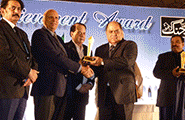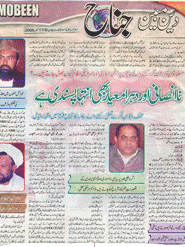PEW points towards inconsistency in the LNG deal
Click here to View Printed Statement
Kickbacks to the tune of billions feared in the import of gas
LNG policy compromised to benefit a banker and stockbroker
The Pakistan Economy Watch (PEW) on Monday said kickbacks to the tune of billions have been feared in the LNG import deal which can jeopardise the energy future of the country.
Authorities have been violating the LNG Policy in a bid to benefit a mafia comprising a banker, a stockbroker and others, it said.
Pakistan is paying almost two dollars extra to buy one mmbtu of LNG hiking cost of first shipment of LNG comprising 140,000 tonnes or 72, 80,000 mmbtu by almost Rs. 1.5 billion rupees, said Dr. Murtaza Mughal, President PEW.
He said that if three million tonnes of LNG was imported annually as per the plan it will translate into losses of almost Rs 31 billion rupees which will damage economy but benefit the influential individuals.
Dr. Murtaza Mughal said that international suppliers are delivering LNG at the port of buyer country at the cost of $7 per mmbtu while Pakistan is buying the commodity at Qatar at the rate of $8 dollars which costs it 9 USD at Karachi port.
The rates of LNG could be confirmed from two major indexes EAX (East Asia Index) http://www.icis.com/energy/liquefied-natural-gas/icis-lng-services/ and JKM (Japan Korea Marker) http://www.platts.com/products/lng-daily.
Dr. Murtaza Mughal said according to experts adding the charges of terminal, regasification, transportation, losses and theft will jack up the price of LNG to $12 per mmbtu.
Majority of Pakistan population depends on agriculture but the fertilizer sector has been forced to buy LNG from PSO at exorbitant cost which is exploitation of masses, he noted.
Some of the insiders are of the opinion that Indian companies were aware of the cost of LNG for Pakistan therefore they offer cheaper rates despite the fact that distance of Karachi port from Qatar is 933 nautical miles while its distance with Indian post of Gujrat is 1484 nautical miles.
This indicates that Indians pay more fare for the commodity but can offer competitive rates which is evidence enough of the variability in the deal.





